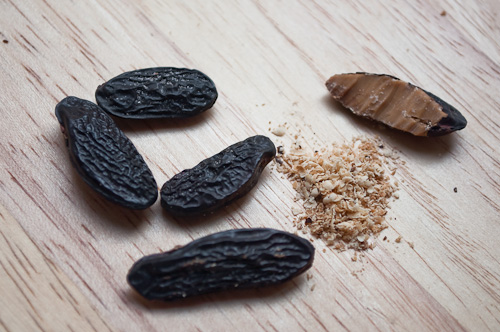Botanical Description:
Scientific Name: Sesamum indicum
Common Names: Sesame Seed
Description:
Sesame Seed (Sesamum indicum) is a small, oil-rich seed known for its culinary uses and potential health benefits. Cultivated for centuries, sesame seeds have also found a place in traditional medicine. Explore the traditional uses, constituents, and applications of Sesame Seed in this Materia Medica.
Disclaimer:
This Materia Medica is provided for informational purposes only and should not replace professional medical advice. Please consult with a qualified healthcare practitioner before using any herbal remedies.
Therapeutic Actions:
- Nutrient-Rich:
- Sesame seeds are nutrient-rich, containing essential vitamins, minerals, and antioxidants.
- Heart Health:
- They may contribute to heart health by providing healthy fats and antioxidants that support cardiovascular function.
- Bone Health:
- Sesame seeds are a source of calcium and other minerals, potentially benefiting bone health.
- Antioxidant Properties:
- The presence of antioxidants in sesame seeds may help combat oxidative stress and support overall well-being.
Constituents:
- Sesamin and Sesamolin:
- These lignans found in sesame seeds contribute to their potential antioxidant and anti-inflammatory effects.
- Vitamins and Minerals:
- Sesame seeds contain essential vitamins (such as vitamin E) and minerals (including calcium, magnesium, and zinc).
- Phytosterols:
- Phytosterols in sesame seeds may contribute to heart health by reducing cholesterol absorption.
Traditional Uses:
- Dietary Supplement:
- Sesame seeds have been traditionally used as a dietary supplement to enhance overall nutrition.
- Bone Health Support:
- They are employed for their potential role in supporting bone health, especially due to their calcium content.
- Cardiovascular Support:
- Some traditional uses include sesame seeds for cardiovascular support, benefiting heart function.
- Antioxidant Boost:
- Sesame seeds are consumed for their antioxidant properties, potentially helping the body combat oxidative stress.
Dosage and Preparation:
- Sesame Seeds in Cuisine:
- Sesame seeds are commonly used in culinary applications, including sprinkling on salads, adding to dishes, or incorporating into baked goods.
- Sesame Oil:
- Sesame oil, extracted from sesame seeds, is used in cooking and as a flavoring agent. Usage should align with dietary guidelines.
Cautions and Considerations:
- Allergies:
- Individuals with known sesame allergies should avoid sesame seeds and sesame-derived products.
- Moderation:
- While nutrient-rich, sesame seeds should be consumed in moderation as part of a balanced diet.
- Interactions with Medications:
- Individuals taking medications or with specific health conditions should consult a healthcare professional before incorporating sesame seeds into their diet.
Conclusion:
Sesame seeds, with their rich nutritional profile and potential health benefits, have stood the test of time as both a culinary delight and a source of traditional medicine. Whether enjoyed in their natural state or as sesame oil, these seeds offer versatility in promoting overall well-being. This Exhaustive Materia Medica aims to provide comprehensive insights into Sesame Seed’s botanical description, therapeutic actions, constituents, traditional uses, dosage, precautions, and applications. For personalized guidance, consultation with healthcare professionals or nutritionists is recommended to ensure safe and effective utilization of sesame seeds as part of a balanced and healthy lifestyle.





